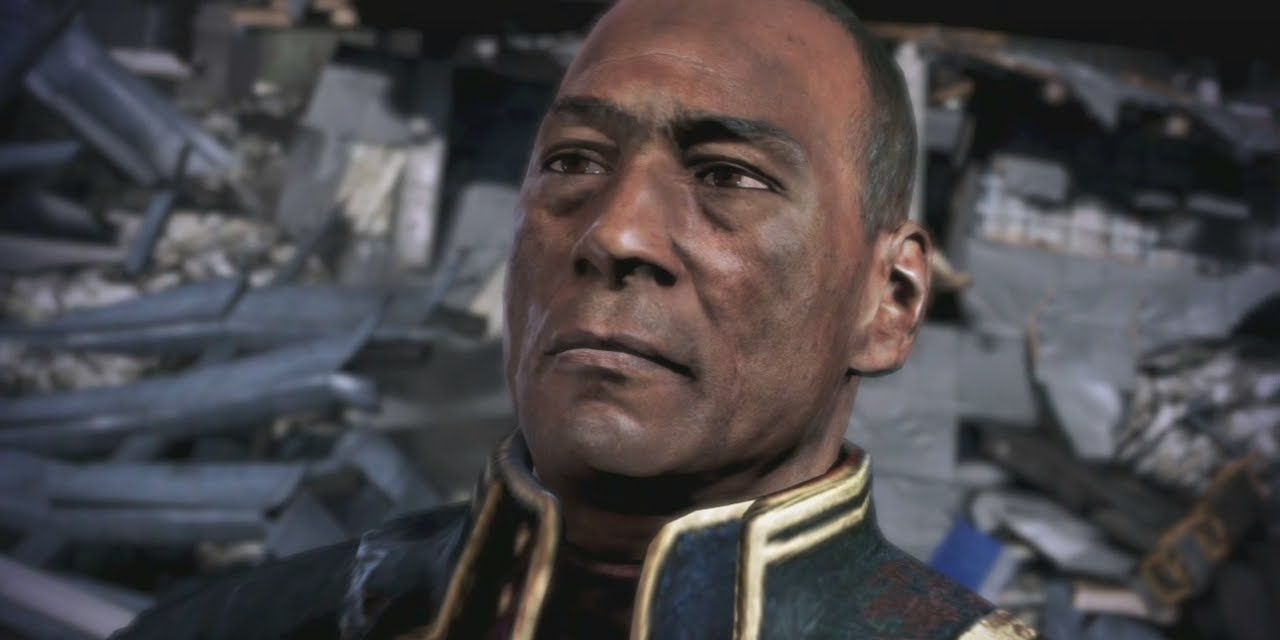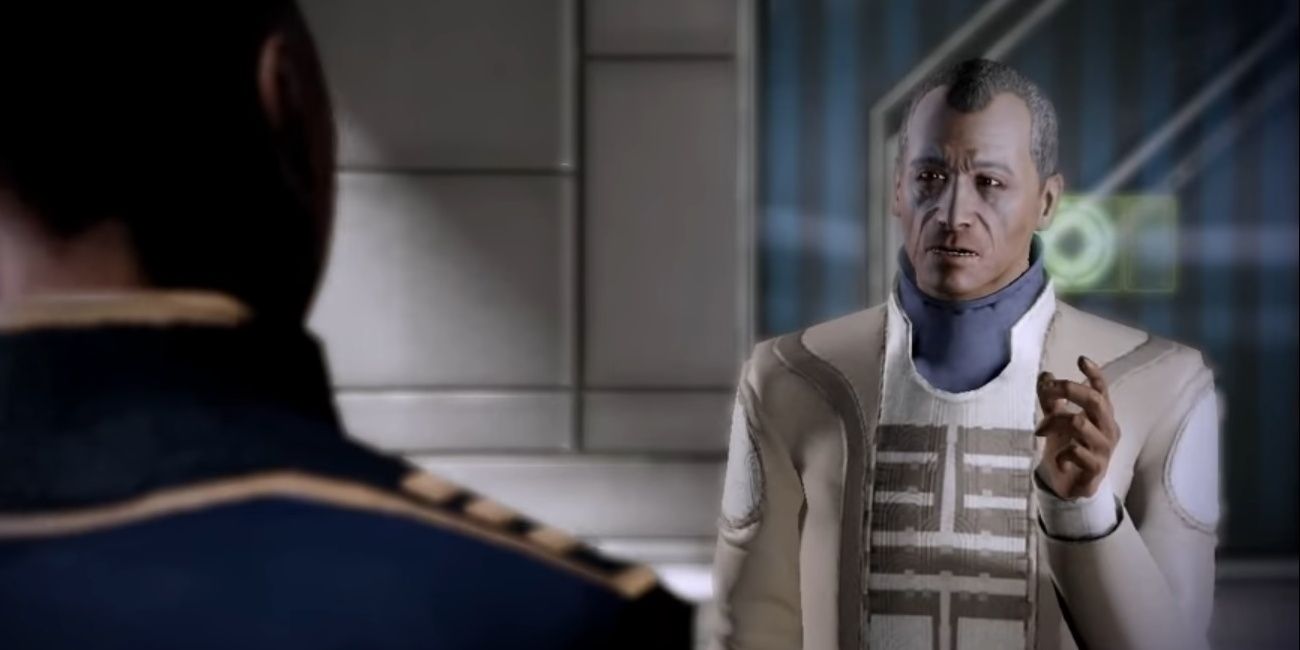
Politics play a major role in the Mass Effect universe. These games don't just tell the tale of the terrifying Reaper invasion or Commander Shepard's adventures across the stars; it's also about how the united humanity presents itself to much older alien civilizations. The Systems Alliance needs to put its best foot forward, but how?
At the start of Mass Effect, humanity is still the new kid on the block, with little influence and limited territory. Some aliens dismiss or scorn humanity entirely, but after the battle of the Citadel against the monstrous Sovereign, it's time for the first-ever human Councilor. It's clear that Captain David Anderson is the best man for the role.
During the first game, two men play a major role in supporting Commander Shepard: Captain David Anderson of the SSV Normandy, and ambassador Udina, who represents the Alliance aboard the mammoth Citadel. Their personalities differ greatly, but both do their best to move Shepard's mission along and advocate for humanity to the alien-dominated Council. Eventually, after Sovereign's and Saren's downfall, the grateful Council (should they survive) will ask Shepard for a recommendation: should Anderson or Udina be accepted as the first human Councilor? Each has their qualifications, and either one will accept the job if it's offered.

Anderson appeals to the players because he has a compromise-oriented personality, but he stands firm when he must. He also has military experience and knows what it feels like to defend humanity from a dangerous and unpredictable galaxy. By contrast, Udina is more dedicated to politics, and being a Councilor is an almost purely political position. In Mass Effect 2, Jacob and Miranda comment on Shepard's choice of Councilor, and they make it clear that Anderson is fairly uncomfortable in the role, while Udina has no such qualms. Still, all things considered, Captain Anderson is a better fit for the role, and not just because of his even temperament.
While Udina is a career politician, that fact might work against him in Shepard's eyes. Udina sees the galaxy from the distant view of his cozy office; to him, humanity is a series of numbers and charts with no personal or tangible feel. Meanwhile, Anderson has spent plenty of time on the front lines. He was once actually considered for the position of Spectre, and he failed mainly because his anti-human mentor, Saren Arterius, sabotaged him. Anderson's eyes are wide open about the best and worst sides of the galaxy, and that is a vital perspective for a leader.
Additionally, Anderson displayed excellent leadership skills during the Reaper invasion in 2186, while Udina mainly juggled numbers and phone calls. Of course, there is merit to what Udina was doing, and Udina really did care. However, he was also ready to betray the Council on behalf of Cerberus for his own gain. To Udina, everything is a political power game, while Anderson's motives are more genuine.
Anderson led the resistance on Earth, becoming a symbol of humanity's desperate but stubborn defiance in the face of the Reaper hordes. While he was rather modest about this, the important of his actions is undeniable. This is the kind of leader the galaxy needs when Reapers attack the Citadel or capital worlds, not a career politician who simply jockeys for more power. Captain Anderson's even temper and willingness to compromise in order to make progress (while still knowing when to put his foot down) make him the kind of political leader humanity while proving itself to the ancient (and judgmental) Council.
0 Comments